[Cross-posted to In Medias Res]
Donald Trump’s selection of J.D. Vance as his vice presidential running mate has put “postliberalism” back in the news, assuming it had ever left. Vance’s embrace of postliberalism and the Trumpist cause of “national conservatism” will no doubt continue to get a great deal of play over the next three months (and, assuming he and Trump succeed in November–either electorally or through the legal challenges and/or mob actions that may well arise in case they appear to have lost—beyond). But I’m not particularly interested in whatever postliberal policies or plans Vance might be able to use his position as Vice President of the United States to promote; he himself has said that he sees his role as that of being a “corrective,” “explicitly anti-elitist, explicitly anti-regime” voice in America’s possible postliberal future, not as someone tasked with trying to “concoct” what that voice actually, specifically has to say.
That’s not because I don’t think he could articulate something interesting. He’s an obviously intelligent man, and even if his conversion from the complicated, Trump-suspicious, sort-of-libertarianism of Hillbilly Elegy in 2016 to his ferocious commitment to Trump-as-defender-of-the-American-homeland today was a mixture of political opportunism and genuine conviction, that’s hardly a reason not to recognize the value of his observations. No, the main reason I’m not too enthused by the prospect of hearing much about Vance’s own postliberal potentiality is simply that I think that what he says is bound to be tied up with the wrong sort of postliberalism.
It would be easy to say that this is just because I disagree with the political particulars towards which his postliberalism points, and that’s certainly true, insofar as it goes. The elites that Vance sees his voice as opposing are, from what I can tell, mostly progressive university professors and Silicon Valley moguls (at least those not associated with Peter Thiel); the regime that he presents himself as challenging is made up of, very likely, mostly just race-conscious bureaucrats and lawyers in the Department of Education and the FBI. I actually do have significant gripes with much of the above, believe it or not–but no, as a democratic socialist and liberal Christian, I don’t see them as constituting that regime of elites which any person, like myself, who values local community most needs to worry about. The postliberal concerns relevant to my way of understanding of the world are rooted in philosophical arguments, rather than partisan ones.
Earlier this summer the political theorist Fred Dallmayr, a scholar I greatly respect, passed away. I think it’s a small tragedy that Vance never had the opportunity, when choosing which currents of philosophical critique to be swept along by, to learn from Fred’s version of postliberalism–because he definitely had one. It wasn’t a conservative version, to be sure. Rather, it was a version that–even it if brought him to some arguably similar civic or communitarian or populist or social democratic conclusions as those we can see defenders of liberalism worrying about–started from very different philosophical premises that are common among other American postliberal thinkers.
For example, the postliberal vision of Patrick Deneen—a close friend of Vance and an oft-cited (by both friends and foes) influence on his thinking, as well as, of course, one of the founders of Front Porch Republic—involves (as I’ve argued) a questioning and ultimately a complete dismissing of the egalitarian foundations of pluralistic democracy. Deneen’s attitude towards the liberal elites who supposedly shape so much of America’s political culture and discourse is just as contemptuous as Vance’s, but he would see them replaced with a new set of elites, ones that would, as theorist and Front Porch contributor Adam Smith put it, “instantiate the values that ‘the people’ already hold” by protecting them from “any of its members who want to ‘impose rights’ in ways that vitiate those values,” by means of a revived ancient constitutionalism wherein the virtuous few would conserve, on behalf of “the many,” the cultural stability they purportedly long for. Dallmayr’s postliberalism, by contrast, is far more friendly to democratic egalitarianism. Which probably means that a conservative like Vance—whose concern with concentrated corporate power is enough to lead him to co-sponsor legislation in the Senate with progressives like Elizabeth Warren, but not enough for him to support directly egalitarian policies like Medicare for All—wouldn’t have been inclined to give it much attention, if he’d been aware of it. That’s his loss.
A brief aside here about Fred, who died at age 95, and was simply a tremendous scholar by any measure, even if–and I don’t think he would have denied this in the least–his scholarship in his later decades tended more towards cultural breadth than philosophical depth. Born in 1928, he was an adolescent during WWII (his older brother died in 1943 on the Russian front), and he wrote in his autobiography On the Boundary: A Life Remembered that he “cannot exaggerate the importance of these war years,” his experiences of fear, confusion, deprivation, and oppression, for both his “persistent opposition to war and violence,” as well as, perhaps perversely, his “trust in the better side of humanity” (p. 10). Trained in law and comparative politics, he later became an expert in continental philosophy, eventually finding a permanent home at the University of Notre Dame in 1978. In the 1980s and 1990s, several fortuitous circumstances enabled him to begin a deep study of the writings of Mahatma Gandhi and other Indian classics and philosophers, and soon he was a pioneering figure in what came to be (usually) called “comparative political theory,” short-hand for the effort (one shared by multiple other academic disciplines in the 1990s) to rethink longstanding political arguments in light of contributions which could be drawn from thinkers and writings outside of the Western canon.
Fred was the person I most wanted to study with when I decided academia was my calling, and I still sometimes wonder, 30 years on, what might have become of me if I’d gone to graduate school at Notre Dame and had Fred as my dissertation advisor. We first corresponded—by typewritten, snail-mail letters–when I was still an MA student with Eric Hyer at Brigham Young University, trying to bring together my interests in political philosophy and my fascination with the assumptions at work in East Asian political cultures, assumptions that had first captivated me turning my two years as a missionary in South Korea. My shot for a place at Notre Dame missed, but Fred remained a cheerleader for me; as the years passed, he happily referred to himself my “doktorvatervater” as I wrote my dissertation under his former student Stephen Schneck at Catholic University of America; opened the door to my first academic publication through an issue of The Review of Politics he guest-edited; was always generous with his time and advice (and letters of recommendation!) as I made my way into the academic job market; took me out to lunch at conferences and made me a part of multiple early comparative political theory programs and organizing meetings; and introduced me to scholars that were (and still are, today) decades beyond me in both age and accomplishment. He was to me, as I’m sure he was to many hundreds of others, a friend, and his death this past June, though we had not interacted in more than a decade, gave me a sorrowful pause.
And now, in the context of the political news of the day, a reflective one. Because in looking back through Dallmayr’s oeuvre—much of which may seem irrelevant to contemporary debates in political theory or practice, instead dealing with such matters as phenomenology, secularism, cosmopolitanism, and more—I see a direct challenge to Vance, Deneen, and others who want to replace liberalism with something better. Because Fred did too, and his approach has, on my reading, a coherence and an open-mindedness that needs to be learned from.
As should be clear from my reference to Deneen’s appeal to ancient constitutionalism above, for writers like himself—as well as Edward Feser, Adrian Vermule, Gladden Pappin, Sohrab Ahmari, C.C. Pecknold, and more—the problems of liberalism are overwhelmingly rooted in what are seen as the enduring truths (both normative and explicitly anthropological, and thus, for these Catholic thinkers, incarnational) of “classical and Christian premodernity” (Deneen, Why Liberalism Failed, p. 23). Philosophical liberalism, according to their arguments, was always doomed to fail as the grounding for a social order, no matter what freedom it allowed for human beings to build communities and cultivate virtue independent of the supervisory order of the Great Chain of Being (as instantiated through the traditions or teachings of family, church, and state). This is because liberal freedom was conceived as a privileging of individual voluntary action against nature’s mastery, and thus, lacking any kind of guiding framework to reify humanity’s own social character, invariably becomes self-interested and atomizing, relativizing the very idea of virtue and undermining whatever communities might incidentally be built.
These are complaints which parallel those that can be found in a dozen different communitarian critiques of liberalism—socialist, Jeffersonian, civic republican, syndicalist, Laschian, communalist, Confucian, and more—but the explicitly Aristotelian orientation of American postliberal thinkers is notable. Their particular critique of liberalism’s assumptions is, for the most part, one I am mostly in sympathy with (and I think Fred was too). But their’s is also not, insofar as I can tell, an immanent critique, one that works from within our own modern subjectivity, instead presenting itself as a reactionary call to upset the modern apple cart. (Deneen implicitly acknowledges this dependence upon outside critiques by allowing that his preferred premodern philosophy “relied extensively on the fortunate appearance of inspiring founding figures and statesmen who could uphold…self-reinforcing virtuous cycles”—WLF, p. 24). So thorough is their apparent conviction that an abrupt re-orientation towards premodern assumptions about human sociality is the best alternative to the breakdowns of the day that their recognition of the complete absence—for technological, socio-economic, and historical reasons—of the sort of demos which they believe would readily embrace the reconstruction of the rule by a virtuous elite doesn’t give them much pause. Instead, it simply means that, as Deneen put it, that “Machiavellian means [must be employed] to achieve Aristotelian ends” (Regime Change, p. 185)—a phrase which perhaps puts a different spin on Vance’s past statements (likely currently being quietly walked back or scrubbed) that Trump, upon his election, should simply reconstitute the entire administrative state and employ it directly for his own ideological ends. Burning down bad institutions so as to build good ones has a long history, after all.
Dallmayr’s approach never involved any burning. In a series of books he wrote towards the end of his life (particularly Democracy to Come: Politics as Relational Praxis, Post-Liberalism: Recovering a Shared World, and Truth and Politics: Towards a Post-Secular Community), Dallmayr’s complaints with modern liberalism, while echoing many of the concerns that can be found in the postliberal literature, were profoundly immanent—that is, his philosophical framing of the problem which faces humankind was always underscored by a sense of historical unfolding, of hermeneutic interpretation, of “letting be” (the title which my advisor Stephen Schneck gave to a festschrift he edited for his former teacher). Anyone familiar with contemporary philosophy can probably discern the Heideggerian echoes in that title, and that discernment would be correct. Dallmayr was a serious scholar of Martin Heidegger, particularly Heidegger’s work post-Kehre, after his intellectually important “turn” towards the poetic in in the 1940s, 1950s, and beyond, as opposed to his pre-Kehre work, including the monumental Being and Time. Dallmayr described his approach to Heidegger’s writings in On the Boundary as “slow and difficult…as an emigrant from Germany I did not know how to surmount the barrier erected by some of Heidegger’s actions and pronouncements in 1933 and the early period of the Nazi regime” (OB, p. 43). But once he began to seriously read the philosopher’s work, he found in Heidegger a way to formulate his theoretical discontent with the modern prioritization of the rational, individualistic, acting subject. (Dallmayr’s deep attachment to and his highly constructive uses of Heidegger’s formulations are not, in my opinion, compromised by recent further revelations on Heidegger’s Nazi past, particularly the translation of his notorious Black Notebooks, but to be fair it’s true Dallmayr never published any comments on these developments, even though they preceded his death by a decade. I talk about my own idiosyncratic—and, perhaps not coincidentally, Dallmayr-compatible—approach to Hediegger’s challenging ideas here; for his part, Deneen presents Heidegger as the inspiration for postmodern theories that “placed primacy on the liberation of the will,” which I think is a reductive reading at best—WLF, p. 120.)
Crucial to these formulations was Dallmayr’s appreciation of the way Heidegger worked out his understanding of the relationship between language and our awareness of and experience of the receptivity and solicitude which characterizes the fact of our being-in-the-world (Dasein). Such phenomenological and existential expressions may seem the furthest thing from political, but for Dallmayr the implications of these philosophical observations—understanding ourselves in terms of a world that gives, that positions us as entities who stand out and receive (linguistically, culturally, historically) that which opens itself up to us—were profoundly important for thinking about democracy, justice, peace, and religious faith. For Dallmayr, moving beyond liberalism meant, most centrally, an “individual decentering,” which he saw as even more radical than the practical judgment which Aristotle made central to the cultivation of political virtue. Drawing upon Heidegger’s student Hans-Georg Gadamer, Dallmayr argued that “the crux of Aristotelian ethics” actually lies in “the careful mediation between…[our] finite existence and the infinite horizon of ethical goodness” which informs our world (Post-Liberalism, pp. xii, 64).
If this sounds like some postmodern version of Christian notions of grace or immanence, Dallmayr would not deny it—though he would also be quick to point to parallel versions which could be (re)constructed out of Jewish, Islamic, Hindu, Confucian, Buddhist, and Daoist concepts as well. His intention in doing so would not be to promulgate some kind of weak and relativistic civil religion; Dallmayr regularly made clear his deep attachment to a pious though philosophically non-doctrinaire Christianity, taking holy men like Thomas Merton, Raimon Panikkar, or Pope Francis himself as his spiritual guides, and he carried that attachment into his active, church-attending faith life. Rather, his aim was that to insist that any human sociality, any enduring community with languages and traditions and texts that can be reflected upon, has within it evidence of humanity’s engagement with, and responses to, the ethical conditions—or, in Heidegger’s terms, the sense of “care” (Sorge)–which characterize our phenomenological existence in the world. In a reflection that relies heavily on Charles Taylor’s A Secular Age (a massive work that itself reflects at important points a deeply Heideggerian sensibility about language and moral evaluation), Dallmayr makes both a religious and an explicitly political point about what it means to understand worldly engagement in terms of hopeful reception, as opposed to a constant fear of the breakdown of virtue (to say nothing of a paranoia over the violation of rights):
The basis of [all] these religions is rather found in Deuteronomy 6:4-6 in the famous “Shema Israel.” What does shema here mean? It is an invocation to the listeners to open their ears, not to harden their hearts, or to become “buffered selves.” What are they to hear? Only this: that the Lord God is one and that “you should love the Lord with all your heart, with all your soul, and with all your might” and that this please should dwell “upon your heart”…
What this and similar biblical passages suggest is a slow maturation or seasoning, a willing turn of people toward social justice and truth without doctrinal inculcation or creedal manifestoes. Such a process does not lend itself to political platforms or ideological proclamations, and certainly cannot rely on coercion or make common cause with “top-down” interruption or disruption. In our time, this process can no longer be restricted to one locality, one society, or one nation but must extend to humanity seen as a global community of interactive and ethically engaged people. In this manner, the contours of a “post-secular” cosmopolis come into view…neither a super state nor a military-industrial complex but only the emblem of a hope or promise sustaining ordinary human lives: the promise of the “city of peace” (Truth and Politics, pp. 16, 21).
Dallmayr’s belief was that the reflective, interpretive, and linguistic engagements of human beings–when properly, democratically understood–will reveal paths beyond what he calls the “minimalism” of modern liberal philosophy, without “top-down” (and thus invariably culture-specific) “doctrinal inculcation or creedal manifestoes.” This kind of hope, admittedly, probably holds little appeal for those who crave specific policy recommendations. But then, Dallmayr never saw himself as engaged in the kind of “epic theory” which animates conservative postliberalism, the conviction that, since liberalism has failed, a project of classic and Christian “recovery and reinvention” (RC, p. xiii) must be directly undertaken, without much patience for what might immanently emerge from those local democratic projects which continue all round us. Dallmayr imagines a respectful, peaceful attendance upon what those communities will do; again, the ideal of politically “letting be.” That is not a call to quietism or inaction, but rather a resistance to those whose first response to the actions and decisions of fellow members of their polity is reactionary. He prefers what he calls an “apophatic” democracy, a deliberative democracy that is “receptively generous,” open to “new possibilities, new paradigms and horizons of thought,” recognizing that human deliberation “always occurs in a…linguistic framework which is historically and culturally sedimented,” and which takes seriously “the humanizing Gandhian principles of ahisma [non-violence] and satyagraha [the peaceful pursuit of truth], but also Montesquieu’s stress on the needed spirit of democracy: the “love of equality” (Democracy to Come, pp. 40-41). He further adds:
Here the radical quality of the democratic love for equality comes into view: that equality can no longer be a purely domestic concern, but has to be the “spirit” governing relations among all peoples and societies in the world. This means that democracy has to be nurtured by different societies and cultures from within, with their own resources. These resources and likely to be philosophical, religious, cultural, pedagogical, and many other kinds. What is important is that these recourses or traditions are rethought and re-energized from within in a democratic spirit (DC, p. 151).
Again, to try to be fair, one might ask if Dallmayr anywhere at least acknowledges that the resources for collective social nurturing he calls for—the patient, receptive engagement with one’s one tradition, similar to what Charles Taylor called “strong evaluation”—might be absent, or at least face institutional or structural opposition that would stand in the way of communities extending themselves and their own truths into emergent understandings. In a word, yes—which is why he sees some kind of “socialist democracy” (or, as he wrote in connection with the theologian Paul Tillich, “a moderate democratic religious socialism”) as that participatory, egalitarian, socio-economic and political arrangement which could move us closest to the “democracy to come” that constitutes his central political aspiration. Guided by his own experience in postwar Germany, as well as the thinking of scholars and activists like John Dewey, Alex Honneth, and Martin Luther King, Jr., he insists that the socialism necessary for the proper, non-individualistic, egalitarian empowering of human communities cannot be statist, and indeed must shun all “central determinism.” (PL, pp. 82, 86-87, 95). The point is, as always, to attend to the kind of receptivity and local experimentation which judicially-minded liberal rights-mongering has long tended to distrust. But Dallmayr trusted that taking democracy seriously would enable postliberal formulations of virtue, equality, and community to emerge; considering the language of Vance at least, one wonders if American postliberals, as much as they genuinely want to rebuild communitarian trust, have any trust at all that the demos will actually do it the way they’re convinced the demos actually wants or needs it to be done.
The postliberal ideological formulation, like conservatism itself, has a different range of valences in the British and broader European context. Speaking from that context, the theorist Adrian Pabst, long associated with John Milbank’s “radical orthodoxy” movement (which itself aims to demonstrate the affinity between postmodern and phenomenological treatments of language, society, and economy with the Christian tradition), sees the postliberal movement of the moment as taking three distinct forms: national conservatism, Catholic integralism, and communitarian pluralism. Perhaps that fits Dallmayr’s always somewhat European perspective, though he himself was far too cosmopolitan in his outlook, far too convinced that the respectful treatment of (and the socio-economic support for) of diverse democratic expressions would allow for human beings everywhere to engage in an ongoing articulation of both human and godly truths, to be content with the communitarian label and its necessary implications of particularlity. Yet no one who reads the breadth of his work could deny that his most fervent intellectual convictions were those that revolved around a peaceful and pluralistic attendance to that which looking beyond secular modernity’s cheap universalism, and looking instead towards the communal and democratic formulations that can challenge and inform and make more civic the liberal capitalist presumptions of the West, might reveal. That sort of patience would never manifest in a political platform on which one could run for political office, of course. But as a student of politics who learned a good deal from Fred, and who now expects to hear about postliberalism pretty much daily between now and November, I can only wish.
Requiescat in pace, Herr Doktor Dallmayr. I hope you’ve finally been able meet Gustav Mahler at last.

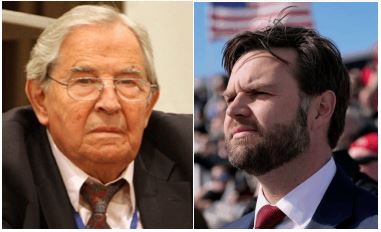

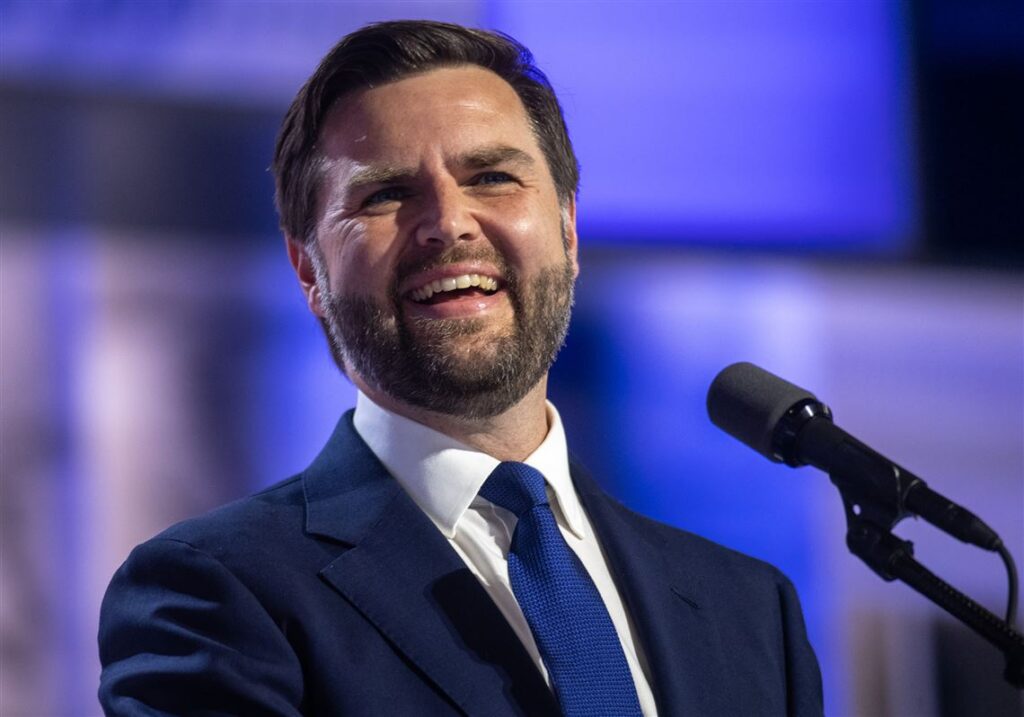
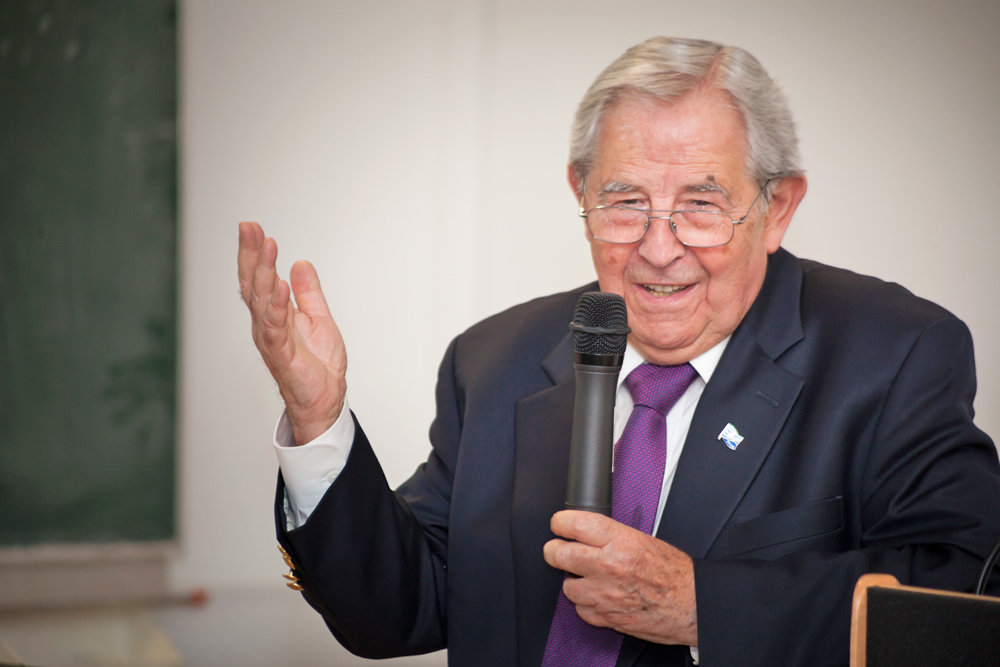
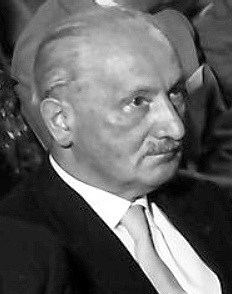
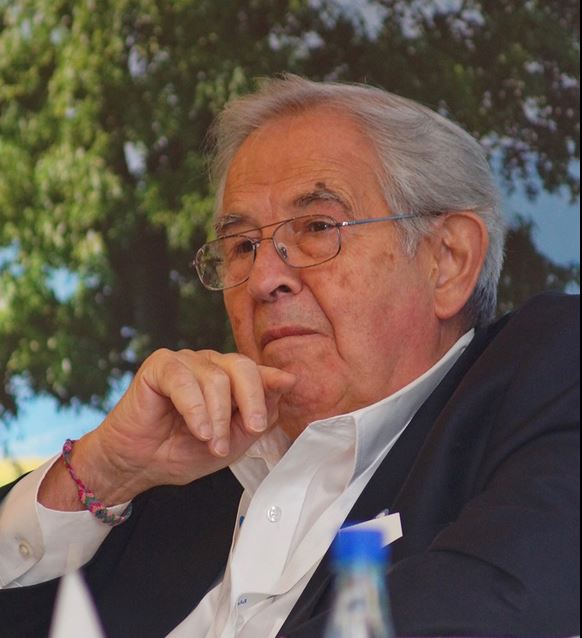

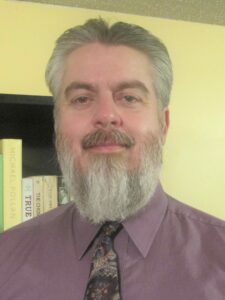
4 comments
Eric Dane Walker
If you are concerned, as I am, about local community, you should be concerned about a locality’s citizens having some say in the shape of their local economy and culture, which means you should be concerned about the soft corporate totalitarianism exercised by an oligopolistic economy. And that, to my mind, means you should be quite concerned about Silicon Valley moguls.
Michael Martin Serafin
I wish there were was such a thing as the “Conservative Socialists of America”!
Marchmaine
As an undergrad at ND in the late 80s, I had the good fortune to take two or three Political Philosophy classes with Prof. Dallmayr. He was such a fine lecturer making a wide variety of philosophers intelligible to my dense undergrad mind.
I remember the charity with which he entered into the thought of each author; unpacking the best reading for us to grapple with. I most appreciated his introduction to Christian phenomenology rescuing existentialism from dreary post-modern nihilism. If I recall correctly he had a fondness for Gabriel Marcel. Generosity and clarity are the habits of mind I remember most from his classes.
Appreciated the article.
Russell Arben Fox
And I appreciate the comment, Marchmaine! And I envy you too–I was able to sit in on panels with and get into hallway and lunch table conversations with Fred, but I never got to be taught by him, and I’m sad to have missed out on that. Thanks for sharing!
Comments are closed.